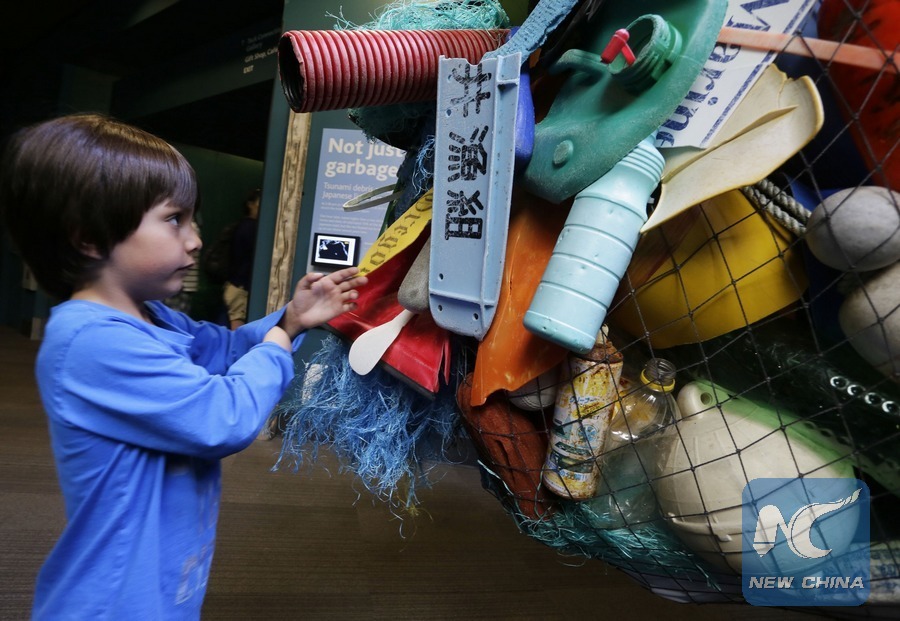
A child looks at the tsunami debris from Japan at Vancouver Aquarium in Vancouver, Canada, June 5, 2015 ahead of the World Oceans Day. (Xinhua/Liang sen)
NAIROBI, Dec. 6 (Xinhua) -- Chile, Sri Lanka, Oman and South Africa on Wednesday joined the United Nations Clean Seas Campaign that aims to reduce the amount of marine litter.
Erik Solheim, Head of UN Environment, said in Nairobi that since February, 39 countries have already signed to up to the initiative.
"For too long, we have treated the ocean as a bottomless dumping ground for plastic, sewage and other waste. The countries supporting Clean Seas are showing the leadership we need in order to end this abuse, and protect the marine resources on which millions depend for their livelihoods," Solheim said.
He said on the sidelines of the Third Session of the UN Environment Assembly underway in Nairobi that the campaign seeks to reverse the growing trend of increasing marine pollution in order to protect the environment.
The countries that have signed up so far make up 50 percent of the world's coastline. This, Solheim said, indicates that there is growing momentum in joint efforts to tackle marine pollution.
The Clean Seas campaign works with government, industry and consumers to drastically reduce single use plastics. According to the UN, between 60 and 90 percent of all marine litter is composed of plastics.
About 8 million tons of plastics leak into the oceans each year.
Solheim noted that global plastic production is increasing at an exponential rate and called for the need to scale up efforts to develop mechanisms to dispose the plastic in an environmentally sustainable way.
Signatories to the Clean Seas Campaign have made specific commitments to tackle ocean plastic, including Indonesia which is pledging to cut its marine litter by 70 percent by 2025 while Kenya has completely banned single use plastic bags on its territory.
A number of other countries such as France, Philippines, Britain and Uruguay have also introduced significant charges or restrictions on other disposable plastic items.

